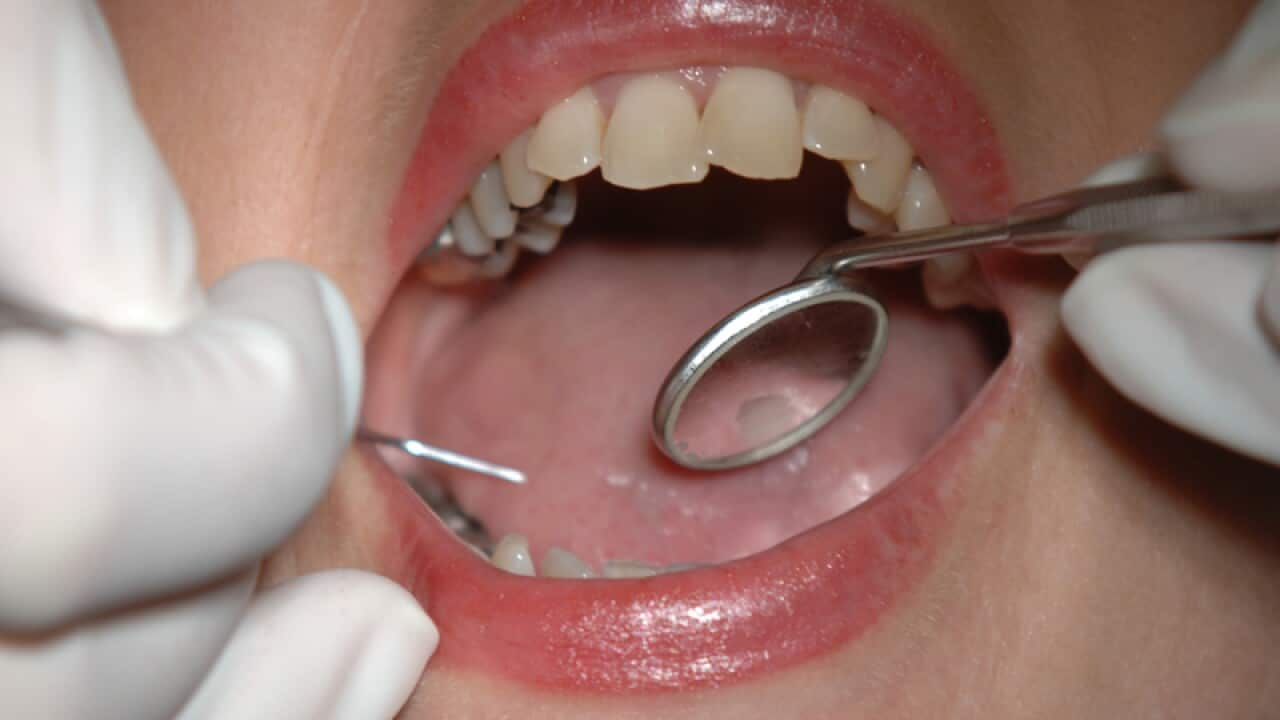Australian scientists have developed a world-first vaccine to prevent and treat gum disease.
Clinical trials are yet to begin but the vaccine has been validated by research on its effectiveness published in leading medical journal NPJ Vaccines.
Periodontitis, or severe gum disease, is caused by the build up of a certain bacteria found in dental plaque on the tooth root in a small crevice between the tooth and the gum.
The bacteria releases toxins into the gum tissue, resulting in the destruction of gum tissue and ultimately tooth loss.
Currently, chronic periodontitis is treated by manually removing toxic plaque that builds up between the tooth and the gum.
Scientists at Melbourne University's Oral Health CRC have identified proteins on the surface of bacterium Porphyromonas gingivitis that can be used as a vaccine against the disease.
The vaccine works by stimulating the body's production of antibodies from the gum tissue to block the bacteria from attaching to the tooth root and preventing them from colonising.
Moderate to severe periodontitis affects one-in-three adults and more than 50 per cent of Australians over the age of 65.
CEO of the Oral Health CRC, Melbourne Laureate Professor Eric Reynolds AO, said he had high hopes the vaccine would improve the quality of life for millions of people.
"We currently treat periodontitis with professional cleaning sometimes involving surgery and antibiotic regimes.
"These methods are helpful, but in many cases the bacterium re-establishes in the dental plaque causing a microbiological imbalance so the disease continues, Prof Reynolds said.
Clinical trials on periodontitis patients could begin in 2018.









